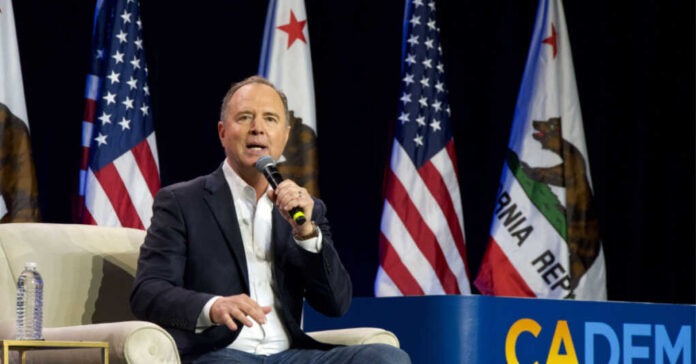
If polls are to be believed, a Republican may dominate at least one California race. According to A UC Berkeley poll, ex-Dodger and Republican Steve Garvey has a slight edge over his Democrat challenger, the ever-disappointing Adam Schiff.
But all is not quite as it seems, the data reveals. Schiff is competing against Katie Porter and Barbara Lee, all vying for the top spot in the Democrat primary election. On the surface, Garvey is favored over Schiff, but only because Schiff’s support is being split amongst his Democrat challengers. The Republican candidate’s lead will almost certainly slip if Schiff faces Garvey one-on-one.
According to California regulations, Democrats and Republicans are listed on the same primary ballot. The top two contenders proceed to the general election regardless of their party affiliation. Republicans have faced challenges in fielding competitive candidates for prominent positions over the years. In the 2016 and 2018 general elections, voters were limited to selecting from just two Democratic options for the Senate. Garvey, then, is competing against three California Democrats to claim Dianne Feinstein’s seat in 2024.
Steve Garvey was a famous and well-loved baseball player for the Los Angeles Dodgers and the San Diego Padres. Garvey was an All-Star for ten seasons and set a record by playing in 1,207 consecutive games. The San Diego Padres honored him by retiring his jersey number, No. 6, in 1988.
Now age 75, Garvey entered the world of politics by running as a Republican for the U.S. Senate from California in 2024. Despite lacking political experience, he has positioned himself as the only Republican candidate with name recognition. His moderate views set him apart from his Republican challengers and may even earn support from fed-up moderate California Democrats.
Garvey has successfully navigated the contentious abortion debate, acknowledging that he is against a “nationwide ban” on abortion even as he does not support abortion.
Garvey hopes to follow a path paved by other famous athletes-turned-politicians. This trail includes notable figures like former California Governor Arnold Schwarzenegger, who transitioned from bodybuilding and acting to become the last Republican to hold that office. Others include Utah Representative Burgess Owens, a former NFL player, and Bill Bradley, a former professional basketball star who successfully transitioned from the court to U.S. senator.
So far, Garvey is poised to be the candidate to beat in 2024. He is in an advantageous position, with 27% support of likely voters, while Schiff is in striking distance at 25%. Porter and Lee stand at 19% and 8%, respectively, while 12% support a different candidate, and 9% of voters remain undecided.
Garvey’s campaign sees a crucial group of supporters in California’s most consistent voters: older, wealthier, white homeowners who likely recall his baseball career. While Garvey understands that many younger Californians may not be familiar with him, he believes he can still relate to them. He sees common ground across generations on high taxes, expensive gas and groceries, and increasing crime rates.
Part of Garvey’s popularity is thanks to Schiff himself. Like Biden’s attack strategy on Trump, who has yet to be declared the GOP candidate, Schiff frames the election as a two-candidate race between himself and Garvey. He launched a $25 million ad campaign on TV, declaring that Garvey is “too conservative” for California and noting that Garvey voted for Trump.
It’s a strategy that will drive Democrat voters to Schiff’s camp but will likely encourage Republican voters to support Garvey, otherwise considered a weak rival for Schiff. Schiff’s strategists think the Democrat has an easier chance of beating a Republican in the state’s nonpartisan election process than a fellow Democrat. In other words, Team Schiff is encouraging a head-to-head with Garvey, banking that his Republican challenger will not win against him in the Democrat state.
But if Republicans turn out, it could lead to a surprise victory for Garvey. According to a poll by the Institute of Governmental Studies at the University of California, Berkeley, only one-third of registered voters believe California is moving in the right direction, leaving 57% of voters believing that the state is on the wrong track. And it doesn’t look good for Democrats on the economic front, either. Sixty-six percent of adults in California expect tough financial times in the next 12 months.
Democrats have played the field unchallenged in California for decades. Could Garvey deliver the home run that upsets the balance in the Golden State?







